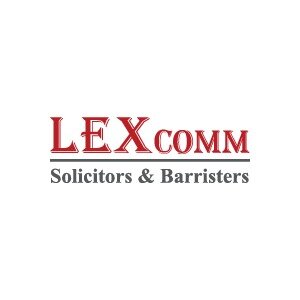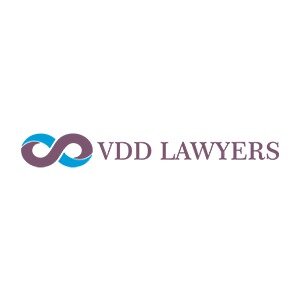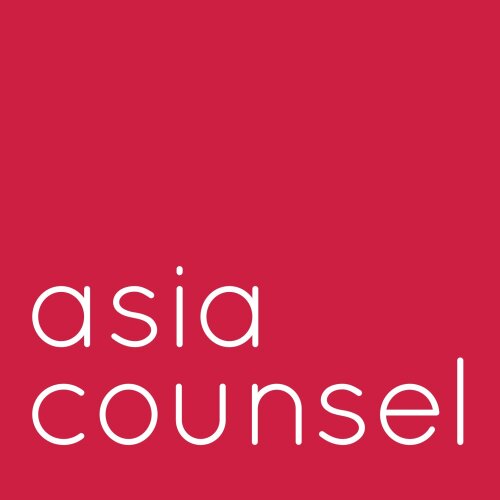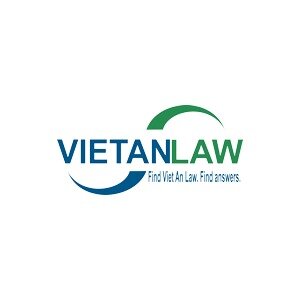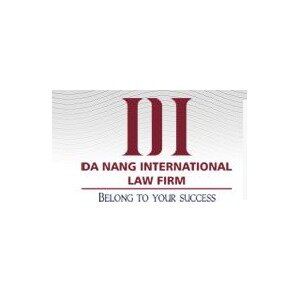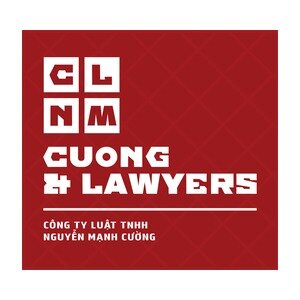Best Water Law Lawyers in Vietnam
Share your needs with us, get contacted by law firms.
Free. Takes 2 min.
Or refine your search by selecting a city:
List of the best lawyers in Vietnam
About Water Law in Vietnam
Water law in Vietnam is governed primarily by the Law on Water Resources, which provides the legal framework for the management, protection, exploitation, and use of water resources in the country. Vietnam's legislation aims to ensure sustainable water development, prevent pollution, and promote efficient use of water for the benefit of the economy, society, and environment. The law addresses groundwater, surface water, rainwater, and other forms of water within the territory of Vietnam, as well as regulations for both individuals and organizations.
Why You May Need a Lawyer
There are several situations where seeking legal advice in the field of water law can be crucial:
- Resolving disputes over water rights, including allocation and usage conflicts between households, businesses, or communities.
- Obtaining permits or licenses for water extraction, wastewater discharge, or construction of water-related infrastructure such as dams, irrigation channels, or reservoirs.
- Navigating environmental regulations regarding water pollution, waste management, and industrial discharge standards.
- Dealing with penalties for violations of water-related regulations, such as unauthorized water use or not meeting wastewater treatment requirements.
- Understanding legal obligations when investing in projects that use, impact, or conserve water resources.
Legal professionals specializing in water law can provide guidance, represent you before authorities, and help ensure compliance with complex local laws.
Local Laws Overview
Vietnam's water law framework features several key regulations and administrative bodies:
- Law on Water Resources (2012): The primary law governing all water-related activities, including definitions of water rights, responsibilities of users, and penalties for violations.
- Decrees and Circulars: These provide specific guidelines for implementing the Law on Water Resources, such as rules for licensing, assessment of water sources, and disaster prevention.
- Ministry of Natural Resources and Environment (MONRE): The central authority overseeing water management, issuing licenses, and enforcing laws.
- Provincial People’s Committees and Local Departments: These bodies manage water resources at local levels, grant licenses for smaller-scale usage, and resolve local disputes.
- Permits and Licensing: Any organization or individual wishing to exploit or use water resources, or discharge wastewater, must obtain appropriate licenses from relevant authorities.
- Protection Zones: The law outlines mandatory protection for areas surrounding lakes, rivers, and water sources to prevent pollution and degradation.
Failure to comply with water laws may result in administrative penalties, including fines, suspension of activities, or criminal liability in severe cases.
Frequently Asked Questions
What is the main legislation governing water resources in Vietnam?
The primary legislation is the Law on Water Resources (Law No. 17/2012/QH13), which regulates the management, protection, and usage of water resources throughout Vietnam.
Who is required to obtain a water use or exploitation permit?
Any individual or organization intending to exploit water sources for production, business, or large-scale personal use, as well as those needing to discharge wastewater into water sources, must obtain the relevant permit from competent authorities.
How are water rights allocated in Vietnam?
Water rights are allocated by the state based on the principles of fairness, priority for essential uses (such as drinking water and domestic use), and sustainable management. Licenses specify the volume, purpose, and duration of water use.
What are the penalties for violating water-related laws?
Penalties can include fines, revocation of permits, obligatory restoration of affected water sources, or even criminal prosecution for serious environmental damage.
How can I resolve a dispute over water usage with a neighbor or another business?
Water use disputes are initially mediated by local authorities. If informal resolution fails, parties may take the dispute to the People’s Committee or court, where a water law specialist can provide valuable assistance.
Are there environmental standards for wastewater discharge?
Yes, strict standards exist for the treatment and discharge of wastewater into natural water bodies. These standards are set by MONRE and local authorities, and are designed to protect public health and the environment.
Can foreign investors obtain water use permits in Vietnam?
Foreign investors may obtain permits, but they must comply with both national legislation and any applicable bilateral or international agreements. The licensing process is overseen by the same Vietnamese authorities as for local investors.
What protection exists for water sources in Vietnam?
The law requires protective zones around water sources, limits activities that can cause pollution, and mandates monitoring and enforcement to prevent degradation of water quality.
Is community participation allowed in water management decisions?
Yes, the Law on Water Resources encourages community involvement in local water management, especially for sustainable use and protection of shared resources.
How can I apply for a water use license?
Applications can be submitted to the Ministry of Natural Resources and Environment or local Departments of Natural Resources and Environment. The process involves submitting technical documentation, environmental impact assessments, and proof of necessity.
Additional Resources
For further information or assistance regarding water law in Vietnam, consider reaching out to the following:
- Ministry of Natural Resources and Environment (MONRE) - The main government agency responsible for water management.
- Local Departments of Natural Resources and Environment (DoNRE) - Provincial level offices handling local water issues.
- Legal support centers and professional legal associations - Organizations such as the Vietnam Bar Federation can recommend specialists.
- Environmental NGOs working in water management - These may offer community support and advocacy resources.
- Official government portals and publications - Providing up-to-date laws, circulars, and implementation guidelines.
Next Steps
If you require legal assistance with water law in Vietnam, here are recommended steps:
- Identify the specific water law issue or dispute that you are facing.
- Gather all relevant documents, including permits, contracts, or notices received from authorities.
- Consult with a lawyer or legal firm that specializes in environmental or water law to assess your situation and recommend actions.
- Contact local government offices or regulatory bodies for further information or to initiate formal procedures, if necessary.
- If you anticipate disputes or legal proceedings, ensure your legal representative is experienced in dealing with Vietnamese regulatory authorities and court systems.
- Stay informed about ongoing changes to water law by regularly reviewing guidance from MONRE and other official sources.
Legal matters concerning water resources can be complex, especially when dealing with permits, environmental regulations, and cross-border issues. Timely legal consultation can help you effectively address your issue while ensuring compliance with Vietnamese law.
Lawzana helps you find the best lawyers and law firms in Vietnam through a curated and pre-screened list of qualified legal professionals. Our platform offers rankings and detailed profiles of attorneys and law firms, allowing you to compare based on practice areas, including Water Law, experience, and client feedback.
Each profile includes a description of the firm's areas of practice, client reviews, team members and partners, year of establishment, spoken languages, office locations, contact information, social media presence, and any published articles or resources. Most firms on our platform speak English and are experienced in both local and international legal matters.
Get a quote from top-rated law firms in Vietnam — quickly, securely, and without unnecessary hassle.
Disclaimer:
The information provided on this page is for general informational purposes only and does not constitute legal advice. While we strive to ensure the accuracy and relevance of the content, legal information may change over time, and interpretations of the law can vary. You should always consult with a qualified legal professional for advice specific to your situation.
We disclaim all liability for actions taken or not taken based on the content of this page. If you believe any information is incorrect or outdated, please contact us, and we will review and update it where appropriate.
Browse water law law firms by city in Vietnam
Refine your search by selecting a city.







